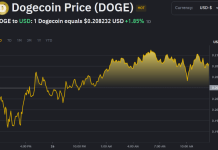Tech continues to evolve at a breakneck pace, constantly propelled by innovation and a thirst for greater efficiency. As we delve deeper into the complexities of digital advancements, we encounter transformative concepts that promise to redefine traditional systems. This exploration not only sheds light on what these technologies entail but also challenges us to consider their implications for the future.
Blockchain Transparency – More Than Just Buzzwords
The phrase “blockchain transparency” isn’t just a trendy term tossed around in tech circles; it represents a pivotal shift in how data transactions are handled across numerous sectors. Blockchain is a digital ledger that offers unmatched transparency and security, a feature that’s particularly appealing in industries like finance and healthcare, where the stakes are inherently high. By allowing data to be distributed but not copied or altered without consensus, blockchain technology heralds a new era of transparency. This level of openness is not just about keeping records but about fostering trust without the need for traditional intermediaries.
The Impact of Blockchain on Everyday Technology
While blockchain started its journey within the confines of cryptocurrency, its potential stretches far beyond. Today, this technology is paving the way for innovations in various fields. From securing medical records with greater integrity to enabling smart contracts that execute themselves when conditions are met, blockchain is quietly integrating into the fabric of our daily tech interactions. This integration suggests a future where our interaction with technology is more secure, streamlined, and, importantly, user-centric.
Decentralized Finance – A Game Changer in Economic Empowerment
Decentralized finance, or “DeFi” as it’s popularly known, takes the spotlight as perhaps the most groundbreaking application of blockchain technology. Stripping away the control traditional banks and financial institutions have over money, financial products, and financial services, DeFi proposes a model where the control and access to money are widespread and not confined to gatekeepers. Utilizing smart contracts on blockchains, DeFi platforms can run autonomously, with algorithms dictating the operations instead of boards or CEOs. This shift not only makes financial services more accessible but also creates a more inclusive financial ecosystem. The potential to minimize fees, expedite transactions, and enhance accessibility makes decentralized finance a cornerstone in the modern financial landscape, marking a significant shift towards a more equitable financial paradigm.
The Ripple Effect of Blockchain on Global Trade
The implications of blockchain extend well into the global trade arena, redefining transparency and efficiency in logistics and supply chain management. By enabling real-time tracking of goods and automating many of the compliance processes, blockchain can significantly reduce delays caused by manual checks and the reconciliation of records. This is particularly transformative for industries like manufacturing and agriculture, where products need to move quickly and reliably across borders. The integration of blockchain ensures that every stakeholder in the supply chain — from farmer to consumer — can trace the journey of a product, ensuring authenticity and reducing the risk of fraud.
Regulatory Challenges and Future Outlook
With great technology comes great responsibility, and this is especially true for blockchain. As it stands, regulatory frameworks are struggling to keep pace with the rapid development of blockchain and decentralized finance. The lack of clear regulations poses a challenge, particularly in areas like consumer protection and financial oversight. Governments and international bodies are currently at a crossroads, determining how to implement regulations that protect users without stifling innovation. The decisions made in the next few years will be crucial in shaping the sustainable growth of blockchain technologies and their integration into mainstream finance.
What’s Next for Blockchain and Decentralized Finance?
Looking ahead, the potential for blockchain and decentralized finance is boundless. Innovations like non-fungible tokens (NFTs) and decentralized autonomous organizations (DAOs) are already hinting at what the future may hold. These technologies could further democratize access to wealth and resources, making investment and ownership more accessible to a global audience. As blockchain technology becomes more user-friendly and integrated into mobile and web applications, we can expect widespread adoption that could change the face of modern technology.
Embracing a Future Powered by Blockchain
The journey of blockchain from a novel concept to a foundational technology in finance and beyond illustrates its vast potential. As we venture further into an era marked by digital transformation, embracing technologies like blockchain and decentralized finance not only seems inevitable but essential. The future promises a more transparent, efficient, and inclusive global system powered by the very technologies we are only beginning to fully understand today. By staying informed and adaptive, we can all be part of this exciting technological evolution.
Disclaimer: This article contains sponsored marketing content. It is intended for promotional purposes and should not be considered as an endorsement or recommendation by our website. Readers are encouraged to conduct their own research and exercise their own judgment before making any decisions based on the information provided in this article.



































